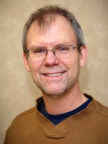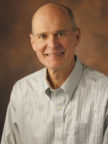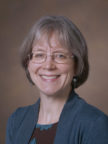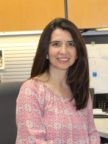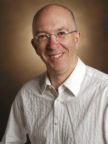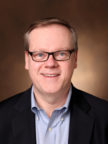Auxiliary Mentoring
At Vanderbilt, we are committed to helping you, our students and postdocs, navigate and grow through the rigor of graduate education. We are a community, not just siloed groups. As such, our faculty are committed to helping all trainees, not just those in their own research programs. To extend this commitment, we have assembled a team of faculty to serve as auxiliary mentors for second year students and beyond. The development of such a resource aligns with the recommendations of the National Academies of Science Engineering and Medicine’s report on effective mentoring in STEMM that encourages students to build a network of multiple mentors during their Ph.D. training, and to include mentors who are outside of their direct reporting relationships. Vanderbilt’s auxiliary mentors are willing to provide students and postdocs with their perspective on academic and professional matters. Students who have completed their first year of graduate study can select an auxiliary mentor(s) from among the 11 faculty members listed below and postdocs may select from those mentor(s) indicating their availability to meet with postdocs.
How can I contact an auxiliary mentor? Trainees should contact the auxiliary mentor of their choice directly via email if they would like to meet. The chosen mentor might, on occasion, be unavailable due to other obligations and therefore, the trainee is encouraged to contact second and third mentors. Please note, the existence of this ready group of mentors is not meant to inhibit students from establishing mentoring relationships with other faculty during the course of their training. Students and postdocs should continue to foster deep connections with their advisor, department, and program.
How can an auxiliary mentor help? During a meeting, the auxiliary mentor will listen to any question or concern and discuss it with the trainee. It would be most helpful if the trainee could frame specific challenges or questions with tangible examples to highlight their concern. The auxiliary mentor may provide their advice about working through an issue with a colleague or supervisor, or will direct the student or postdoc to the appropriate resource for additional consultation and advice. It is important to note that as faculty members, auxiliary mentors are mandatory reporters to the Title IX and Student Discrimination Office of any complaint of discriminatory behavior by another individual toward the trainee. The auxiliary mentor may, based on their judgement, report or encourage reporting of any unprofessional behavior towards the trainee to Project Safe. All other content disclosed by the trainee will remain strictly confidential unless the trainee agrees in writing to disclosure.
Auxiliary Mentors
Chris Aiken studies the molecular biology of HIV infection. He joined the Vanderbilt faculty in 1995 and served as Director of Graduate Studies of the Microbe-Host Interactions program from 2006-2021. Eleven graduate students have earned the Ph.D. degree under his mentorship. His gratuitous advice to graduate students is to start a Roth IRA and contribute regularly to it. Chris is available to meet predoctoral students and postdoctoral fellows.
Dr. Carter is a Professor in the Department of Biochemistry, a member of the Training Faculty in the Neuroscience Program and the Director for Graduate Studies in Neuroscience. He is Associate Director for Education and Training in the Brain Institute and an Investigator in the Kennedy Center. Bruce is available to meet predoctoral students and postdoctoral fellows.
Dr. Edwards is a VU and IGP alumnus, Human Genetics class of 2008, and is currently an Associate Professor of Medicine in the Division of Epidemiology. He is the Associate director of the Vanderbilt Genetics Institute, and the Director of Graduate Studies for the Human Genetics PhD Program. He is a genetic epidemiologist conducting research on the genetic determinants of complex human traits. He works extensively with electronic health records data to develop cohorts for genetic association studies. He works on cardiovascular traits such as blood pressure and hypertension, colorectal cancer, women’s health, and racial disparities traits. Todd. is available to meet predoctoral students.
Kathy Friedman is currently Associate Professor and Vice-Chair in the Department of Biological Sciences, having previously served for many years as the Director of Graduate Studies in Biological Sciences. Her research interests involve DNA replication and DNA repair in a yeast model system and she is a member of the Genome Maintenance group in the Vanderbilt Ingram Cancer Center. Kathy is available to meet predoctoral students and postdoctoral fellows.
Dr. Vivian Gama been an Assistant Professor for four years in the Department of Cell and Developmental Biology. Mentoring and guiding trainees throughout their graduate career has been one of the most fulfilling opportunities she has had in academia. Vivian is available to meet predoctoral students and postdoctoral fellows.
Borden Lacy is a Professor in the Departments of Pathology, Microbiology, and Immunology and Biochemistry. She has affiliations with four graduate programs: Biochemistry, Chemical and Physical Biology, Microbe-Host Interactions (MHI), and Molecular Pathology and Immunology (MPI). She is interested in mechanisms of bacterial pathogenesis. Borden is available to meet predoctoral students and postdoctoral fellows.
Richard O’Brien is a Professor in the Department of Molecular Physiology & Biophysics (MPB). He is the Director of Graduate Studies for the MPB Graduate Program and the Director of the NIDDK-funded T32 Molecular Endocrinology Training Program (METP). He has extensive experience with both training graduate students and resolving problems that arise during graduate training. Richard is available to meet predoctoral students and postdoctoral fellows.
Dr. Rhoades’ laboratory focuses on tumor-induced bone disease using molecular biology and pre-clinical approaches to identify novel therapeutic targets for reducing tumor growth and bone destruction. She is an Associate Professor in the Department of Medicine in the Division of Clinical Pharmacology with appointments the Program in Cancer Biology, Pharmacology, and Biomedical Engineering graduate programs. Julie is available to meet predoctoral students and postdoctoral fellows.
Bill Tansey received his Ph.D. from the University of Sydney in 1991. He performed his postdoctoral studies at Cold Spring Harbor in New York, and stayed on there as faculty until 2009, when he came to Vanderbilt. He is currently Professor of Cell and Developmental Biology, holds a secondary appointment in the Department of Biochemistry, and is Ingram Professor of Cancer Research. Bill is available to meet predoctoral students and postdoctoral fellows.
